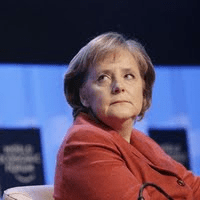Proposals in Brussels to throw a financial lifeline to debt-strapped Greece have met with resistance from some EU governments, in part because of the poor precedent a bailout would set for other member states in similar predicaments. But there is also mounting public opposition to such a move, particularly in Germany. As a result, despite the threat a Greek meltdown would pose to the eurozone as a whole, the German government has adopted a hard-line position in negotiations over how the EU should respond, causing relations between the two countries to become increasingly strained.
The German government has historically extended massive funding to poorer member states, including Greece, in part by being the biggest net contributor to the European budget. In 2008 alone, it contributed €8.8 billion more than it received. This largesse has served the dual purpose of promoting European integration while at the same time creating markets for German exports. But the resulting trade imbalances between Germany and peripheral economies such as Greece's are at the core of the current situation: For many years, Greeks were consuming above their means, thanks to easy access to credit made possible by eurozone membership -- a situation that also benefited Germany's export-driven industry. During this period of abundance, little attention was paid to Greece's mounting budgetary imbalances.
Now, however, with Greece's debt endangering the common currency and the eurozone economy, Berlin is pushing Athens to enact substantial spending cuts in lieu of a bailout. During a recent finance ministers meeting in Brussels, Germany -- along with Austria and Sweden -- blocked efforts to reach an agreement on financial aid measures.

